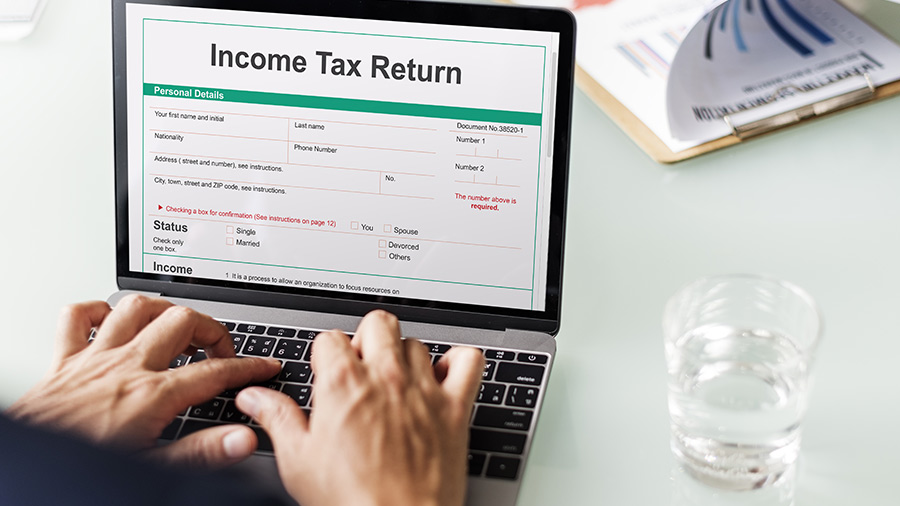One of the most important aspects of being financially responsible for Indian consultants and freelancers is completing Income Tax Returns (ITRs). It assists in keeping an open financial record in addition to guaranteeing legal compliance. This page offers a thorough overview of eligibility, ITR filing procedures, and necessary paperwork for independent contractors and consultants in India.
Meaning of freelancer
A freelancer is a person who works for themselves and has the freedom to select the jobs, projects, and businesses they want to work for. In addition, income tax must be paid by freelancers on the money they get from projects or freelance work. A wide range of advisors and occupations are considered freelancers, including web designers, fashion designers, content writers, blog consultants, software developers, and tutors.
Any revenue that a person makes through applying their manual or mental skills is considered as “profit and gains from business and profession” under the revenue Tax Act. Freelancing is regarded as a business and a profession for tax purposes.
Eligibility for Consultants and Freelancers:
In India, independent contractors and consultants are classified as self-employed people. As a result, if their total income surpasses the basic exemption threshold—which is subject to change in accordance with current tax laws—they must file income tax returns.
Process of Filing Income Tax Returns:
Choose the Appropriate ITR Form: Depending on the nature of their income, consultants and independent contractors can select the right ITR form. Freelancers and consultants generally use ITR-3 or ITR-4 forms.
Maintain Detailed Records: Keep thorough records of all income earned and expenses incurred. This includes invoices, receipts, and any other pertinent financial records. This documentation is vital for accurately calculating taxable income and deductions.
Calculate Total Income: Consultants and freelancers should calculate their total income, which includes income from consulting fees, freelance projects, and any other sources. Deduct eligible business expenses to arrive at the taxable income.
Avail Deductions and Exemptions: Identify and claim eligible deductions and exemptions. Common deductions for self-employed individuals include expenses related to business operations, professional tax, and contributions to schemes like the Public Provident Fund (PPF) or Employee Provident Fund (EPF).
File Online: The income tax filing process for consultants and freelancers is primarily done online. Visit the official Income Tax Department website and register or log in to the e-filing portal. Choose the appropriate ITR form and fill in the required details.
Verification and Submission: After completing the online form, verify the details and submit the return. The Income Tax Department will generate an acknowledgment (ITR-V) that needs to be signed and sent to the Centralized Processing Center (CPC) within the stipulated time.
Documents Required for Filing ITR:
- PAN Card: A Permanent Account Number (PAN) is a mandatory requirement for filing income tax returns.
- Aadhar Card: Linking Aadhar with PAN is essential for e-filing. Ensure that the details match to avoid discrepancies.
- Bank Statements: Include bank statements reflecting income, expenses, and any transactions related to consultancy or freelance work.
- Invoices and Receipts: Maintain a record of all invoices raised and receipts for payments received. This helps in accurate reporting of income.
- Form 16/16A: If applicable, include Form 16 received from clients or employers, summarizing the TDS deducted during the financial year.
- Details of Investments: Provide details of any investments made, such as insurance premiums, mutual funds, or other tax-saving instruments.
- GST Registration Certificate: If registered under the Goods and Services Tax (GST), provide the GST registration certificate and details of GST returns filed.
- Proof of Business Expenses: Keep receipts and invoices for business-related expenses such as travel, office supplies, and professional development.
- Profit and Loss Statement: Prepare a profit and loss statement detailing income earned and expenses incurred during the financial year.
- Form 26AS: Verify Form 26AS to cross-check TDS details. It provides a consolidated view of tax deducted at source.
In India, filing income tax returns is a crucial duty for independent contractors and consultants. People can make sure that tax laws are followed and benefit from transparent financial records by being aware of the qualifying requirements, filing correctly, and keeping correct records. For self-employed professionals in India, staying up to date on the newest tax legislation amendments and seeking advice from a financial expert can further expedite the filing process.


